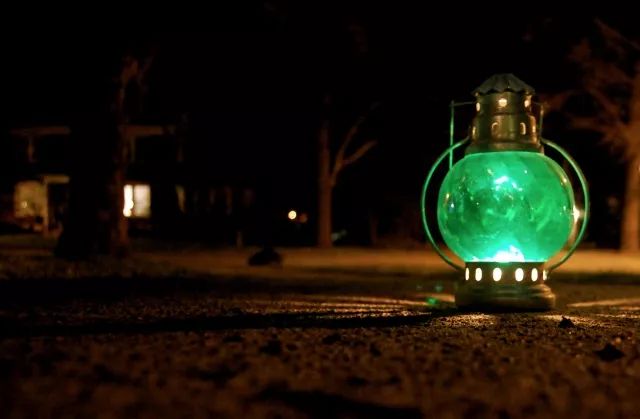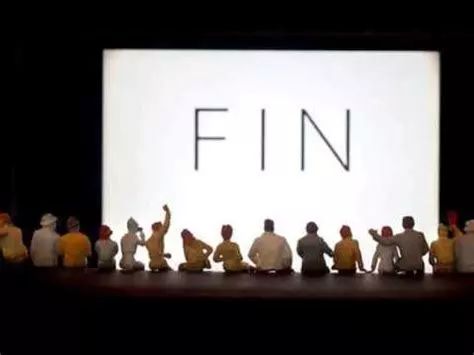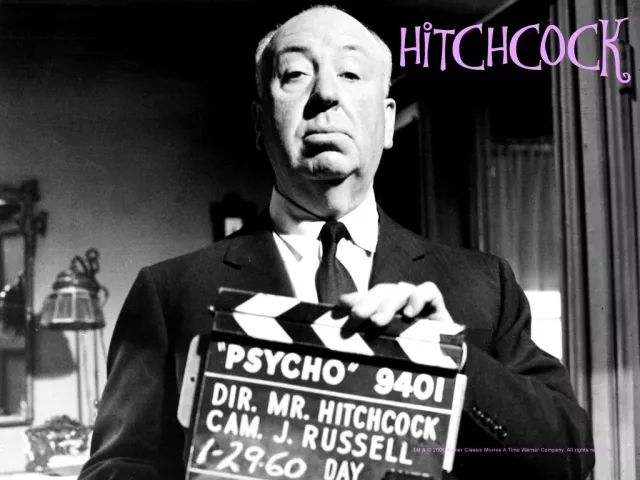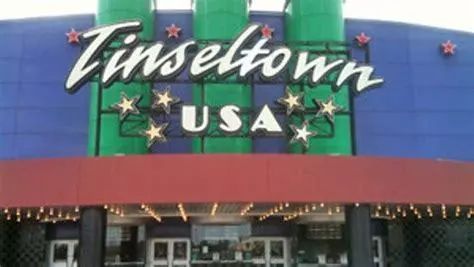
◆ ◆ ◆ ◆
That’s a Wrap!
—The Origins of Filmic Language
拍摄完工!
——电影语言的起源
◆ ◆ ◆ ◆
By Allison Wright
“Film is history.”
“电影就是历史”
I’m reminded in the above quote by Martin Scorsese that film and history are inextricably linked. By its very nature, a film is a historical artifact—a record of some past action that preserves the moment for time to come.
马丁斯科塞斯在上述引言中提醒我们,电影与历史密不可分。就其性质而言,电影就是一件历史制品,记录了过往的一些行为,为未来保留了珍贵的时刻。
Film, as a medium, also has its own history. It’s astounding to me that filmmaking, which has always exemplified the innovative uses of modern technology, has now been around for well over a century. And the words that have sprouted up and evolved since the inception of the art form have roots that are simply begging to be explored.
电影,作为一种媒介,也有其自己的历史。电影制作一直以来都是现代科技创新应用的典范,令人惊叹的是,它已走过了一个多世纪。自电影诞生以来涌原由网现和发展起来的词语源自哪里,还有待人们进一步探索。
Here are a few of the more notable origins from words commonly used in filmmaking:
以下是电影制作常用词汇一些较值得注意的起源:

Blockbuster
卖座大片
A blockbuster film is one that achieves, or is intended to achieve, massive commercial success. The term has military roots, originating in the wartime decade of the 1940s to denote a destructive aerial bomb. The force of the explosion was capable of demolishing an entire block of buildings, hence ‘block’ + ‘buster.原由网’ A blockbuster film is usually expected to break box office records and destroy its competition.
一部blockbuster film(轰动一时的电影)即已取得或待取得巨大商业成功的电影。该词具军事背景,源于20世纪40年代十年战时,指一种破坏性的空用炸弹。其爆炸力能够摧毁整个街区的建筑物,因此是 block+buster。通常情况下,blockbuster film即一部预计能打破票房纪录并碾压竞争对手的电影。

Cliffhanger
悬念
Now mostly attributed to television and suspenseful novels, cliffhanger has been used since the 1930s to denote a storytelling device in serialized filmmaking in which the episodic plot ends in unresolved suspense. The etymology ‘cliff’ + ‘hanger’ is pretty explicit, and provides a vivid image: a person dangles off the edge of a cliff, and we, the audience who wish to know whether this person will survive or perish, are also left hanging. Until we tune in next time, that is.
cliffhanger现主要归因于电视和悬疑小说,自20世纪30年代以来一直用来表示一种系列摄制的叙事手法,其中每一集情节以悬念结束。词源 cliff+hanger非常明确且形象生动:一个人悬在悬崖边上,观众们迫切想知道这个人是否会活下来,结果却悬而未决,直到我们下次收看。

Cutting-room floor
剪辑室
The phrase “end up on the cutting-room floor” is widely used in filmmaking to denote parts of a film that have been edited out, or cut, from the final product. The term “cutting room,” that designates a place in which the cutting of materials is done, reaches as far back as at least the early 18th century and encompasses a variety of manual labor – including working with textiles and meat, and even fowww.58yuanyou.comr a time meant a room in which a surgery is held. In the lexicon of the film industry, the cutting-room floor refers to the discarded strips of film literally cut from the reel. While digital filmmaking has now made the physical cutting-room more or less obsolete, it still remains a valid and common way of talking about scenes or lines from a film that have been edited out.
短语end up on the cutting-room floor广泛用于电影摄制,表示从最终作品中剪辑或删除的电影片断。词语cutting room指材料剪辑完成的地方,该词至少可追溯到18世纪初,涵盖各种体力劳动——包括纺织品和肉类相关工作,甚至有段时间指代进行手术的房间。在电影业词汇中,cutting-room floor指从电影胶片卷盘上剪切掉的废弃胶片条。虽然现在数字电影制作已使实体cutting-room(剪辑室)或多或少过时了,但在讨论已剪辑电影的场景或台词时,它仍是一种有效且常见的方式。

Green light
放映许可
When a film project has been green-lit, it has been given the go-ahead, or permission, from the studio higher-ups. The noun green light has been around since the late 1830s, and was first attributed to the railway. It was (and still is) a traffic signal that notified train conductors when and how to proceed. Interestingly, the green light originally indicated to conductors to slow down, with a white light giving the “all-clear.” Red, however, appears to have always meant stop.
当一个电影项目被green-lit(给予绿灯),即表示该电影已获得制片方上级的放行或准许。名词green light大约出现在19世纪30年代末,最初是用于铁路方面。过去(现在仍)指代交通信号,通知列车员何时以及如何行进。有趣的是,绿灯最初是指示列车员减速,白灯表示“放行”。而红灯则似乎始终意味着“停止”。

In the can
杀青
When a film sequence or project is in the can, that means it is done, finito. According to the Oxford English Dictionary, the phrase relates to the verb form of can原由网 that means “to preserve by sealing up air-tight in a can.” In film contexts, the act of canning is to record onto film. One could also infer a relation to the actual canister, or can, in which the film reel is held after it is unloaded from the camera and when editing is complete.
当一个电影系列或项目in the can(杀青),即意味着拍摄完成,finito(结束)。根据《牛津英语词典》(简称OED),该短语与动词形式的can有关,意思是“装入密封罐中保存”。在电影业,canning(装罐)的行为就是电影录制。我们还可以推断,将电影胶片从摄影机上卸下并剪辑完成后,就会看到保存胶片的胶片筒或罐。

McGuffin
引子
The McGuffin (or MacGuffin) is a particular event, person, object, or circumstance that is, according to the OED, “initially presented as being of great significance to the story, but often having little actual importance for the plot as it develops.” Another narrative technique originating out of 1930s filmmaking, the term was first used in film contexts by famed director Alfred Hitchcock, who, it is said, borrowed the surname from a Rudyard Kipling story in which a similar diversion is present. To give examples of McGuffins in film would lead into spoiler territory, and so I’ll leave that to you to Google.
根据OED的记载,McGuffin(或MacGuffin)指一个特定的事件、人、物或环境,“最初呈现出对故事具有重要意义,但随着情节发展往往就没有多少实际重要性了”。该词还指代源于20世纪30年代电影制作的一种叙述技巧,著名导演阿尔弗雷德希区柯克首先在电影中使用了该词,据说,他借用了拉迪亚德吉卜林故事中的类似姓氏。展示电影中使用McGuffins的例子会涉嫌剧透,所以我留给大家自己去搜索了。

Silver screen
银屏、银幕
An intentionally antiquated way to generically refer to “the movies” or “the cinema,” the term silver screen carries with it the history of how films were produced and projected in theaters. Screens upon which films were projected in the early years of moviemaking were doused in a metallic paint, creating a highly reflective silver surface. While these screens have mostly been phased out of use with standard format films, 3D films, it turns out, seem to be particularly suited for this mode of projection. As the saying goes, “everything old is new again.”
一种有意为之的使用方式,泛指the movies或the cinema,silver screen一词形象展示了电影制作和在剧院上映的历史。早期电影制作中,电影放映的屏幕是浸入金属漆中,从而产生高反射的银色表面。虽然在标准格式电影和3D电影的冲击下,这些屏幕大部分已被淘汰,但事实证明,其似乎特别适合这种投影模式。常言道,“everything old is new again”(旧东西总会再时兴)。

Tinseltown
星光熠熠之城
Aptly nicknamed to describe the glitz and glamour of Hollywood, Tinseltown finds its roots, obviously, in ‘tinsel’—a sparkling or glittering effect caused by the interweaving of gold or silver thread. Tinseltown is sometimes used in a deprecating manner, as though to cast judgment on the shallowness that life and work in Hollywowww.58yuanyou.comod and the mainstream film industry oftentimes represents. Having come into prominent usage in the 1960s, a culturally turbulent time in America to say the least, it’s not all that surprising to note an emergence of disillusioned language during this period of film history.
Tinseltown是对充满浮华和魅力的好莱坞的戏称,显然,该词源于tinsel——金线或银线交织而带来的闪闪发光或艳丽夺目的效果。Tinseltown有时用于一种“轻蔑的态度”,好似评判好莱坞及主流电影业生活和工作常常表现出的肤浅。20世纪60年代,一个文化动荡的时期,至少在美国是这样,该词的使用越来越突出,这段电影史上出现幻灭语言并不令人惊讶。
(文字整理自“牛津词典”)








